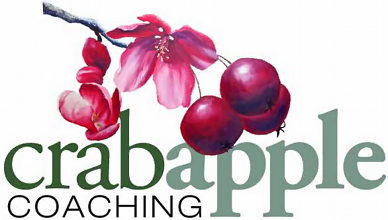 Retirement Stats, Studies, and Stuff
Retirement Stats, Studies, and Stuff
Guest Writer: Kathy Underwood
Kathy Underwood is an ordained minister in the United Church of Canada, a mediator and consultant, and a spiritual care provider in a residential hospice as well as an outpatient Cancer Care Unit. Her background includes 25 years as registered physiotherapist and healthcare administration as well as extensive consulting work in the health, social services, and faith-based sectors. The stories that follow are composites of the stories of many individuals to protect confidentiality.
People whose lives are being threatened by physical or mental illness experience progressive losses of control and autonomy. None of us reacts well to threats to our autonomy. Nowhere is this more apparent to me than when I visit with people who are receiving some type of infusion therapy. They consent to treatment that involves a concoction of medications, often experimental in nature, for specific reasons. Sometimes the goal is to push the physical illness into remission or to enable another form of treatment such as radiation and/or surgery. Sometimes the goal is to improve quality of life by reducing the symptoms caused by the disease. And sometimes it is to appease the needs of loved ones, who cannot bear the thought of losing someone they love so dearly. I will never forget the haunting eyes of a woman in her early 70s with whom I sat one day while she was receiving the third of six new experimental chemotherapy treatments.
What we do for love
‘Jeanette,’ a strong, competent mother of four and grandmother of three, loved her life. And it was clear that she was deeply loved by Cino, her husband of 45 years, who accompanied her faithfully to every appointment. On this occasion, Cino had gone to get coffee while Jeanette and I talked. Her husband had no sooner left than Jeanette dissolved into tears. “I am done fighting this thing. The treatment is killing me faster than the cancer. I just want time to make the most of my life that remains. But Cino and my kids are so afraid to lose me. I can’t disappoint them. But I am just so, so tired. I feel like I have no control over anything anymore.”
I saw a similar thing happen recently for 83-year-old Juanita, whose cancer was no longer responding to any form of treatment and who was no longer able to digest her food. Two of her three children were adamant at the family meeting that their mom should undergo surgery to have a feeding tube. The eldest of her children was similarly adamant that this was not what Mom wanted. And their dad was so distraught by the dissension in his family that he could barely participate. Juanita was overwhelmed, too, and felt that no one could bear to ask her what she wanted. So for fear of hurting any of her children, she told them that she would do whatever they decided ‘was best for her.’
The stories of Jeanette and Juanita fill me with sadness: sadness for families who are facing the loss of one who is dearly loved; sadness for the time that is lost to the side-effects of unwanted treatments; and, most of all, sadness for the one who feels that she no longer has control over her own life. Caught between the multiple needs of her family and her own desires, she opts for the mostly-unspoken needs of her family that masquerade as concerns that “Mom doesn’t really know what she is choosing.”
And it makes me wonder: what would I do if this were my loved one? How can I be a supportive, safe presence who puts aside my desire to offer opinion so that my loved one can truly be honest? Do I have the courage to hear what I don’t want to hear? Do I have friends with whom I can share my needs and fears about the loss of this important one? Do I love enough to live with the consequences of her decisions? And what if the one dying is me? Do I have the courage and fortitude to state my own needs while also respecting the needs of those I love? Am I willing to be so vulnerable with the people I love best?
The curious promise of limited time
I do not know the answers to most of those questions. But what I have heard and seen as I accompany families through their decision-making is that unexpected gifts flow when families really listen to each other’s needs. Carrie Newcomer, a singer-songwriter and Quaker theologian, writes of the “curious promise of limited time.”[1] It seems to me that honesty and mutual vulnerability enables this curious gift to be accepted and with it comes the unleashing of a generosity and abundance of love that is unstoppable. I have seen daughters who were unable to be in their dying father’s presence suddenly playing cards, celebrating birthday parties and writing the ‘Top 10 Reasons I Love My Dad’ in his room. I have seen families who have never sung together singing at the top of their lungs in times where there is little left to lose and everything to gain. I have watched in wonder as a grandchild climbs up on his grandfather’s bed and say, “It’s okay, Poppy. We are going to be okay.”
I will not know if I can be as brave, selfless and wise as that grandchild until I am faced with my own mortality or that of a loved one. I do know, though, that pondering these types of questions before that time comes can only make it a little bit easier. And pondering is something I can do.[2]
[1] Newcomer, Carrie. “Ev’ry Little Bit of It” on the album, “A Permeable Life.” 2014: Available Light Records. http://www.carrienewcomer.com/content/permeable-life
[2] For those who might be wish to ponder some of these questions, consider reading “Being Mortal” (Atul Gawande, 2014), “Becoming Human” (Jean Vanier, 1998), “Man’s Search for Meaning” (Victor Frankl, 1946) among many others.

This is a beautiful piece of writing and wisdom Kathy. I highly recommend Being Mortal by Atul Gawande.